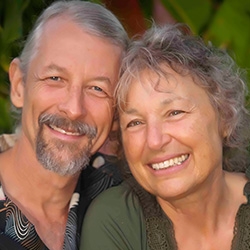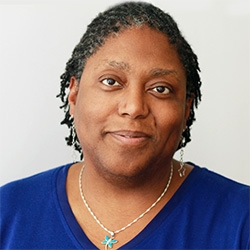
Search Results: facilitation
-
CNVC Certified Trainer Miki Kashtan explains has developed a path to teaching NVC without relying on OFNR: Principle-based Teaching.
-
Use these cards in your practice group or NVC training to understand 4 different ways of responding to hard to hear messages. Become aware of the way you habitually respond to stimulus and develop skills to respond with empathy and express honestly.
-
This article explores ways of starting and maintaining NVC study groups and practice groups. It offers recommended reading support materials and poses questions to consider for structuring and organizing the group.
-
Veteran CNVC Certified Trainer Sylvia Haskvitz explores the phases of Knowing, Living and Teaching NVC.
-
-
Ask the Trainer: "A participant in our beginners' NVC practice group asked the co-facilitators if there was a confidentiality agreement that was typically used in NVC practice groups?"
-
Do you sometimes feel overwhelmed – or locked into passivity? This course offers you a way out. Learn to change the way you perceive leadership, and you’ll help yourself respond more powerfully and proactively every day of your life – wherever you are – and whomever you’re with!
-
In this snippet from Duke Duchscherer's course, Restorative Dialogues: Transforming Conflict, Building Community Resilience, he shares a structured approach for conflict resolution or communication facilitation. It involves a facilitator guiding a conversation between two parties in conflict. The process begins with one party expressing their perspective while the other listens actively. The facilitator then prompts the listener to paraphrase what they heard, ensuring mutual understanding. This cycle continues until both parties feel heard. Subsequently, the facilitator encourages them to discuss potential solutions collaboratively. Once both sides are satisfied, the session concludes, with participants potentially swapping roles for further practice. The aim is for everyone involved to gain experience in effective communication and conflict resolution.
-
Yoram Mosenzon shares that the role of a mediator is often misconceived as solving conflicts, which can create stress and exacerbate the conflict. Instead, the true essence of mediation is about remaining untriggered, understanding the pain of the conflicting parties, and facilitating communication.
-
Join veteran Mediators and Facilitators, Jori and Jim Manske in using Nonviolent Communication and mediation skills for transforming conflict into connection between yourself and others.
-
Even leaders we admire may exhibit behaviors that could be labeled as abusive, at least slightly. This includes not treating followers as equals, using charm, and hiding or twisting truth. In such scenarios a key reason for this is loneliness. If we're using our work and position primarily to gain for appreciation, acknowledgement, and acceptance then we need to examine our own loneliness. We need feedback to keep such conduct in check.
-
Speaking the truth creates congruence, which creates trust, facilitating understanding and cooperation. Without truth there is no growth in our relationships and community. If this is true, then what keeps us from speaking our truth?
-
You've probably witnessed and participated in role plays that were powerful tools for inspiration, integration, or healing. You've likely also been in contexts where role plays fell flat, leaving people frustrated, confused, or disengaged. If you're sharing NVC with others – or are envisioning yourself going there in the future – you'll want to take this class, where the focus is on how to increase the chances of having role plays that serve a clear purpose, engage an entire group, and support the deepest learning possible for all.
-
Inspired by a talk given by Marshall Rosenberg, Jim offers an interactive exploration of powerful strategies for making NVC an integral part of your everyday life.
-
Join CNVC Certified Trainers Jim and Jori Manske for this session that will help you minimize your reactivity and live in greater choice.
-
Listen to Miki talk about the value of participating in groups, recognizing our inherent nature to do so, how industrialization has hindered our skills and the value of participating in a time when it's most needed.
-
Certified CNVC trainer Roxy Manning, Phd, answers a question: how to create a safe space for a first time group working on power and privileges ?
-
In this practice group class, certified CNVC trainers Jim and Jori Manske are facilitating the exploration of the topic of Mourning using the three modes of NVC: self-empathy, honesty and empathic presence. You'll learn how to accept a loss, let yourself feel the sadness and all the emotions, and allow yourself to grieve.
-
Ronnie Hausheer, an NVC facilitator who volunteers her time for OccupyVoice.info joins NVC Academy co-founder Mark Schultz in a discussion of her work sharing empathy, NVC training and mediation with members of the Occupy Movement.
-
Much like other asymmetric relationships (such as therapist and client), there are complications related to power dynamics that can arise with any NVC trainer having sex with a participant. For one, there's (counter)transference. And there's potential for things that may not move outside this asymmetric relationship -- such as projections where the participant, and/or the trainer, is guided by un-healed pain of their "inner child".



















